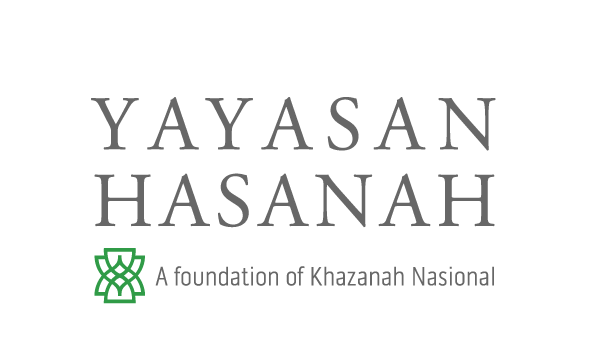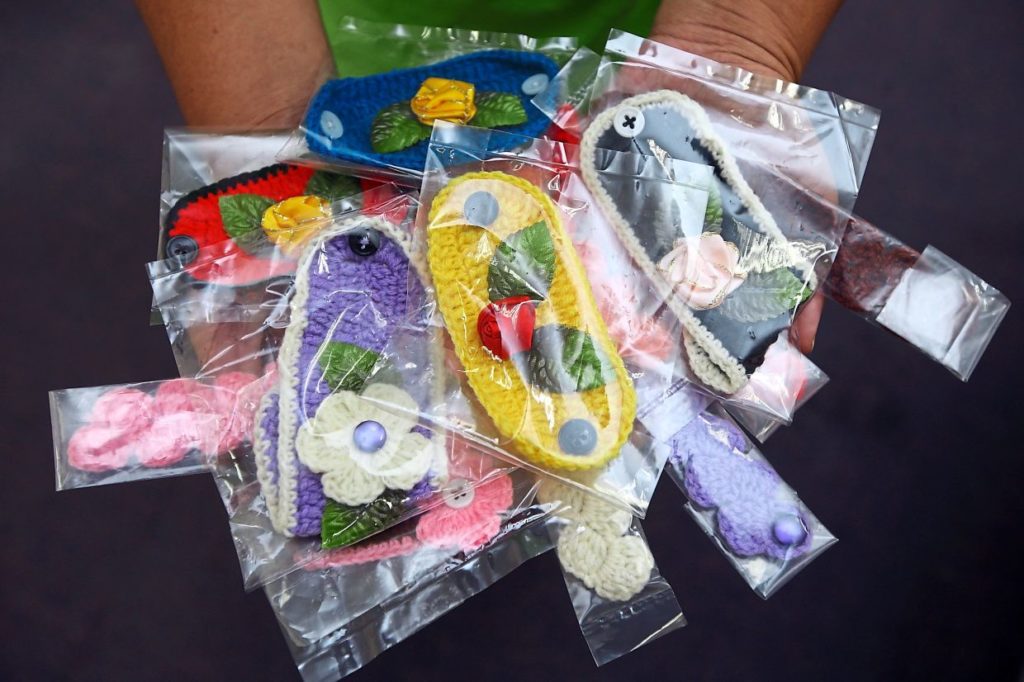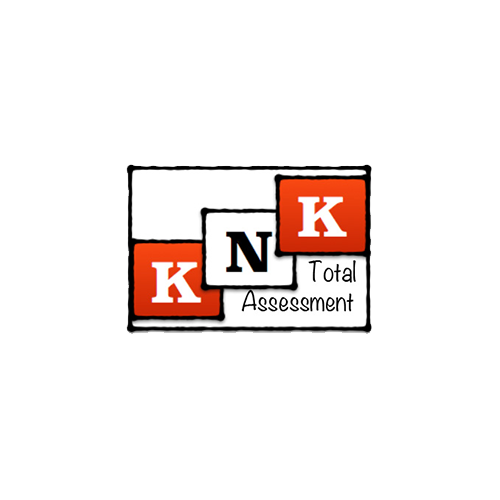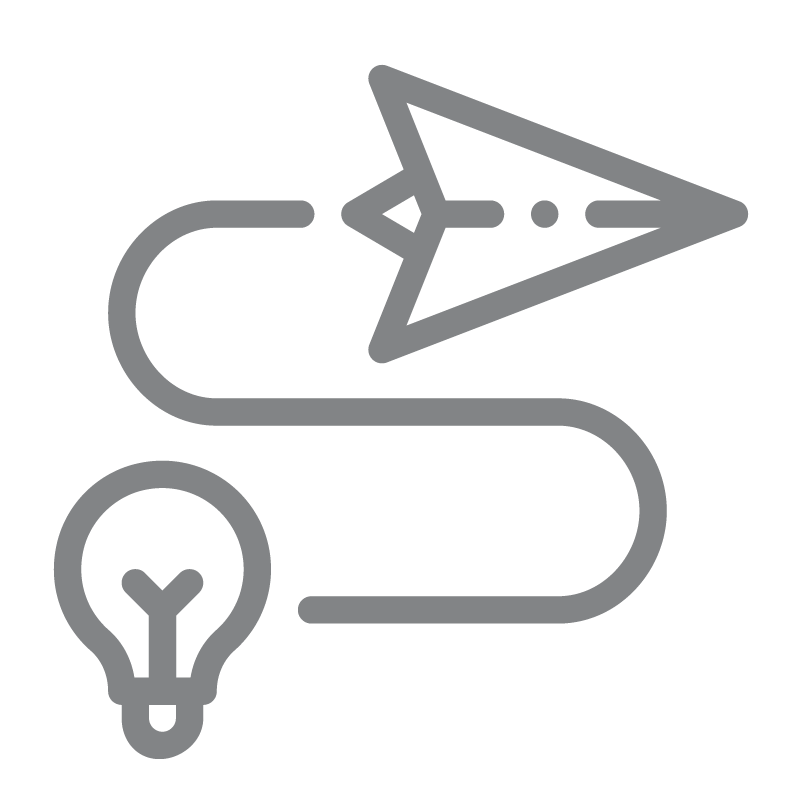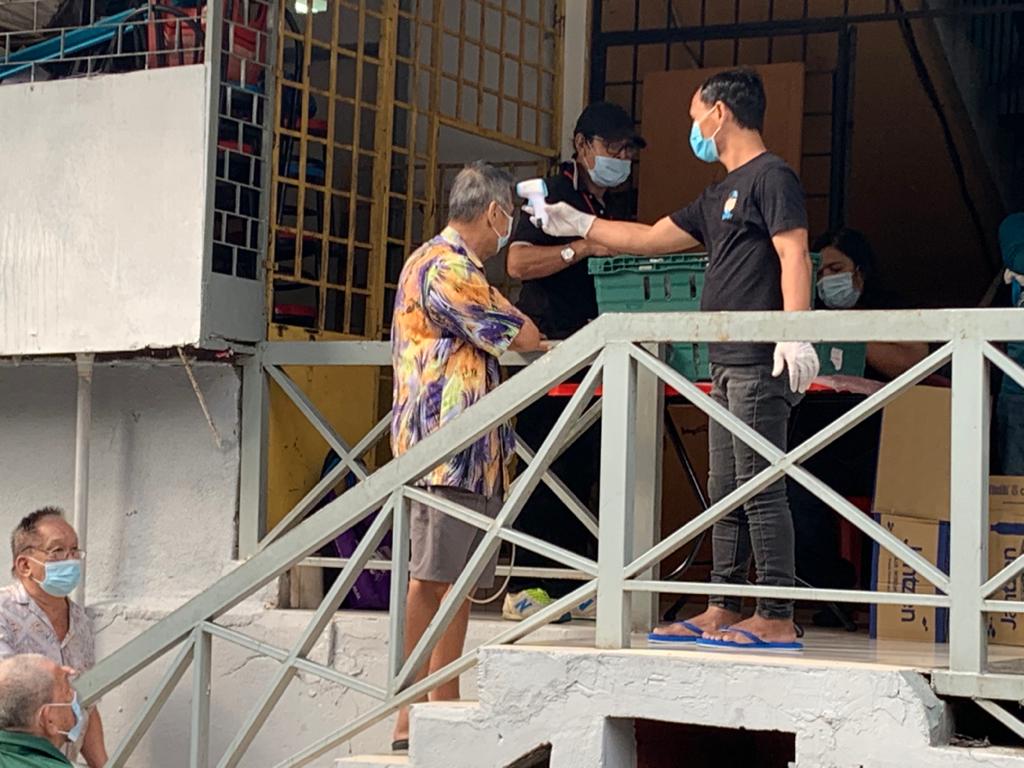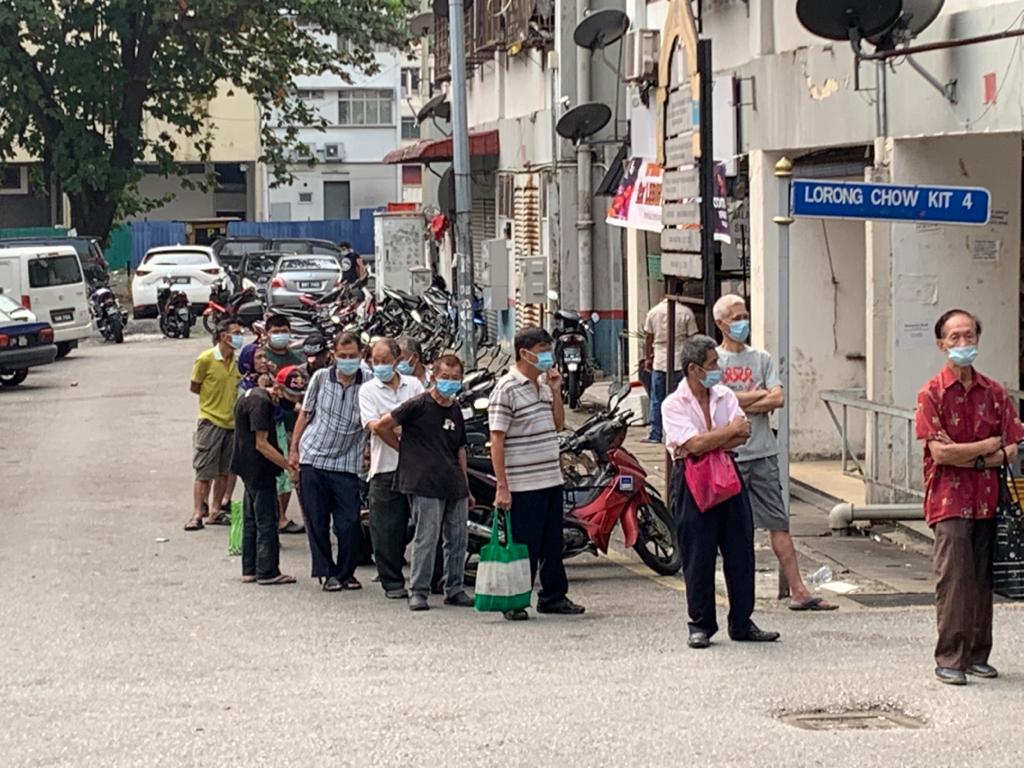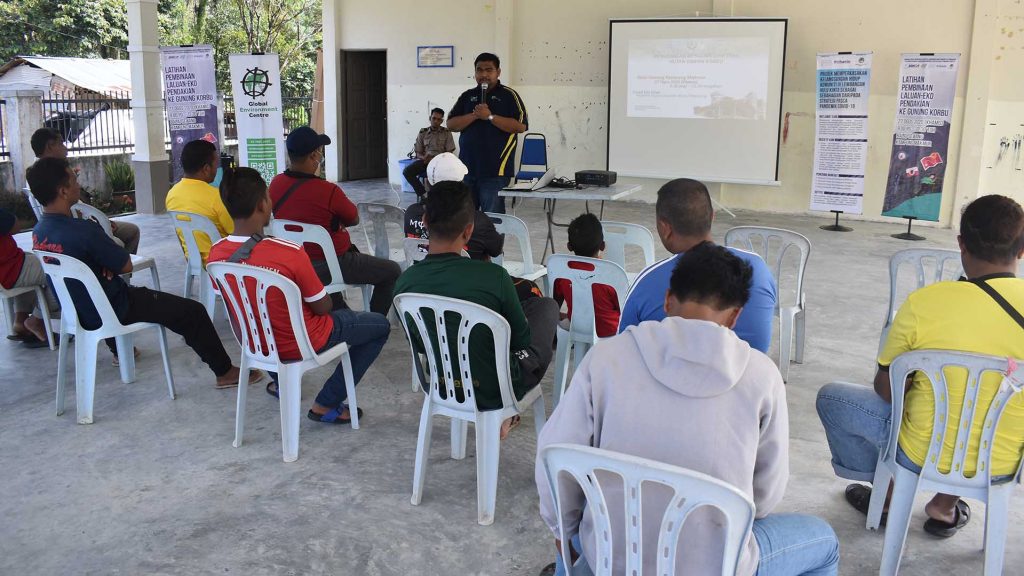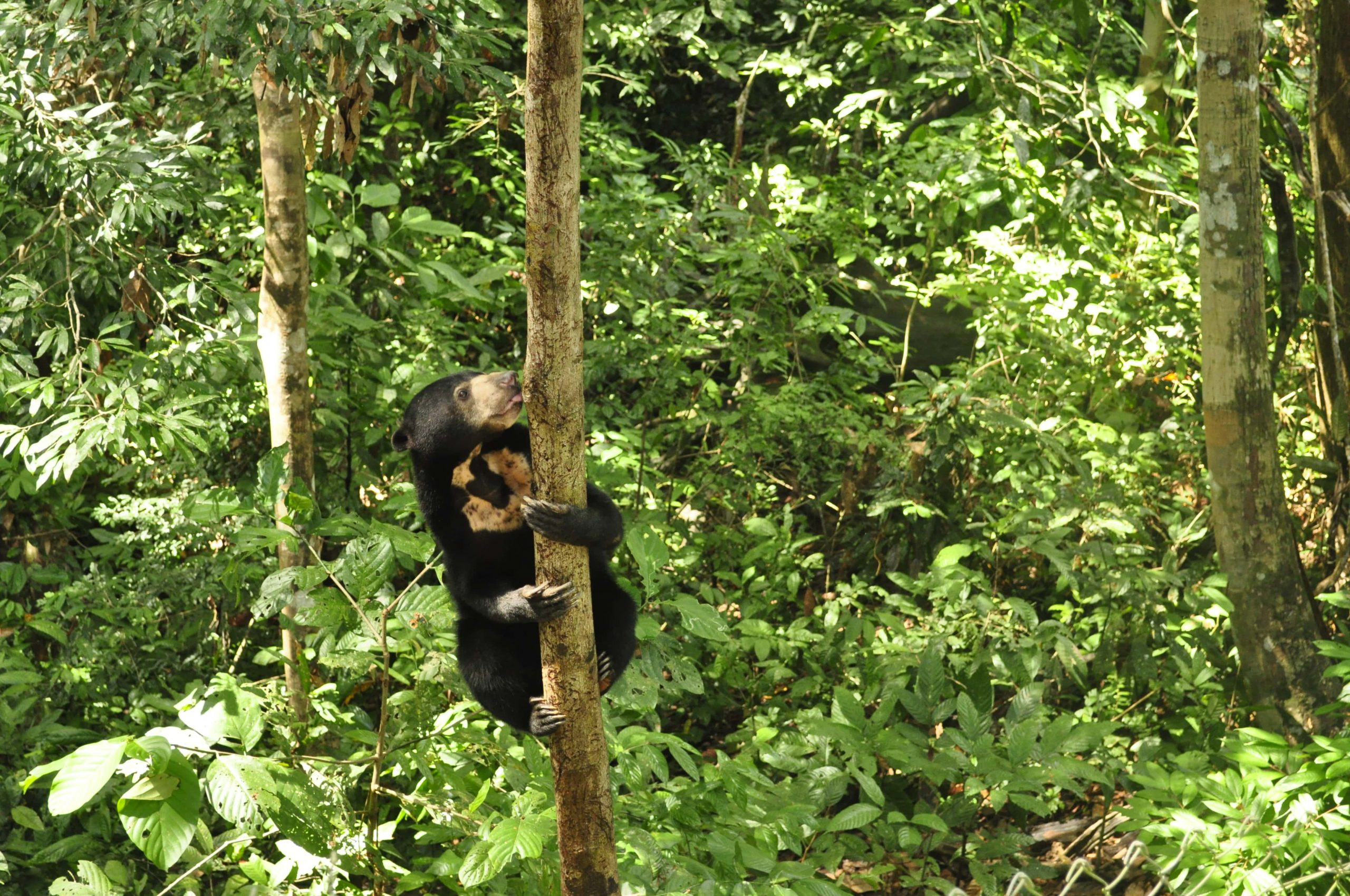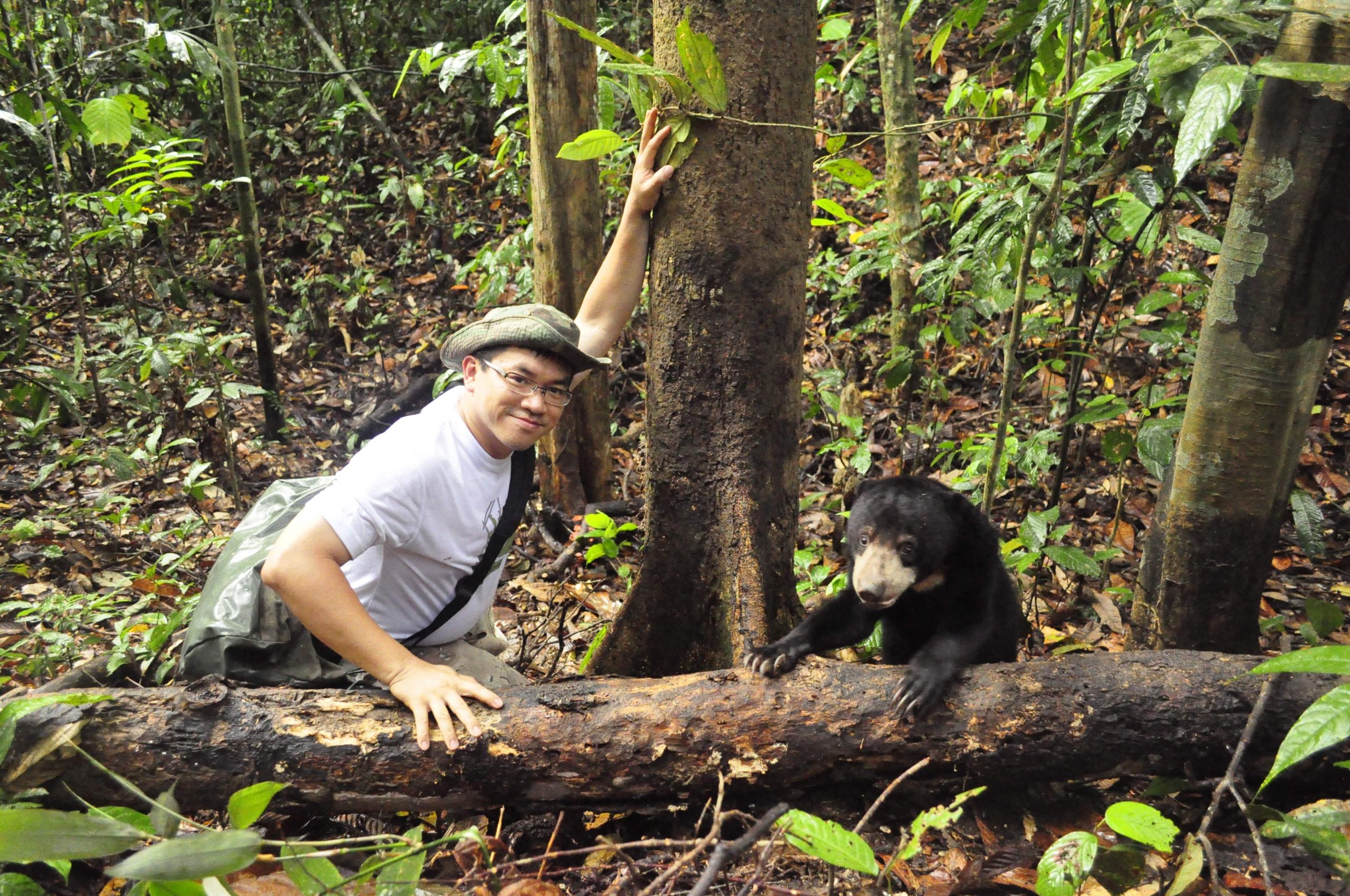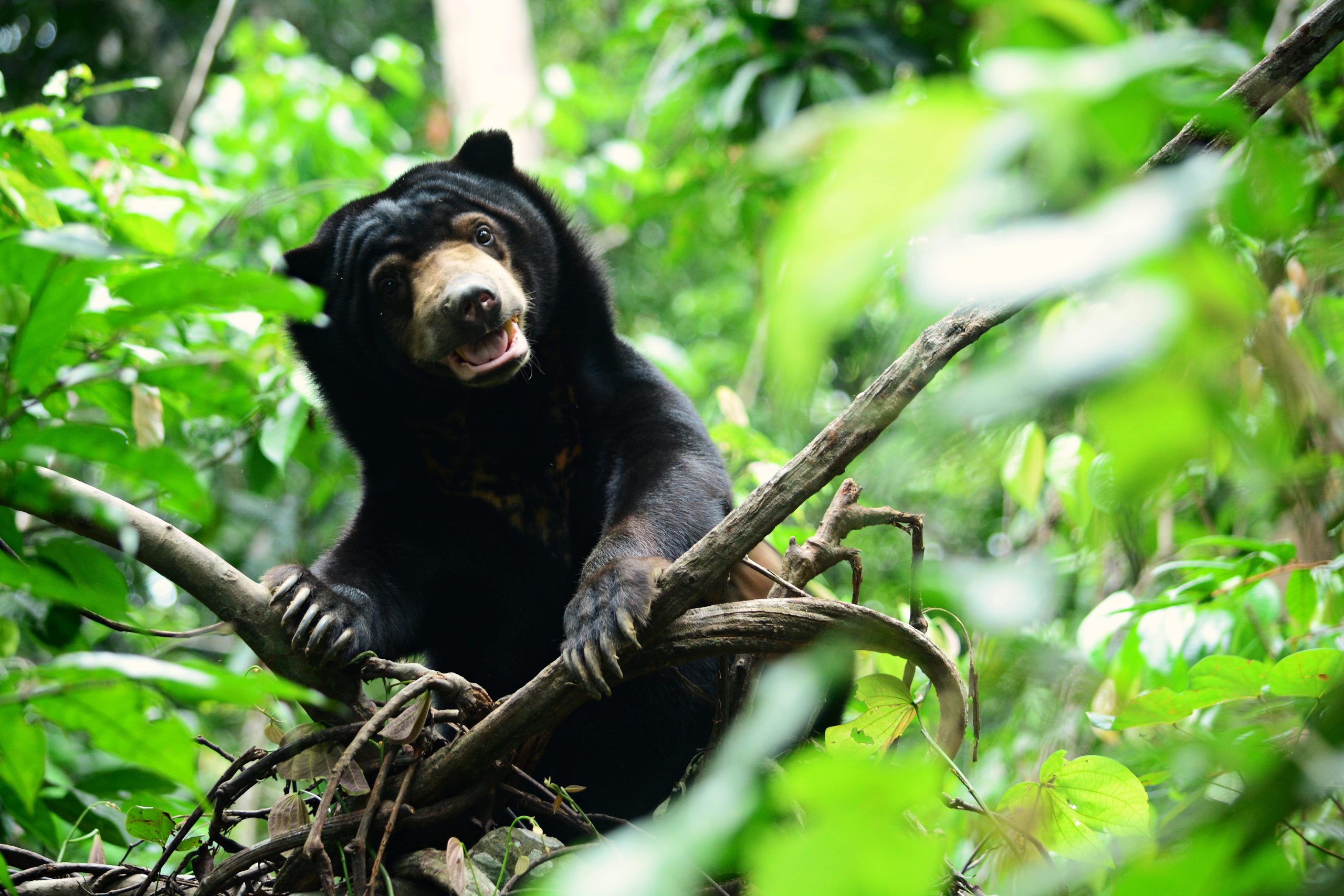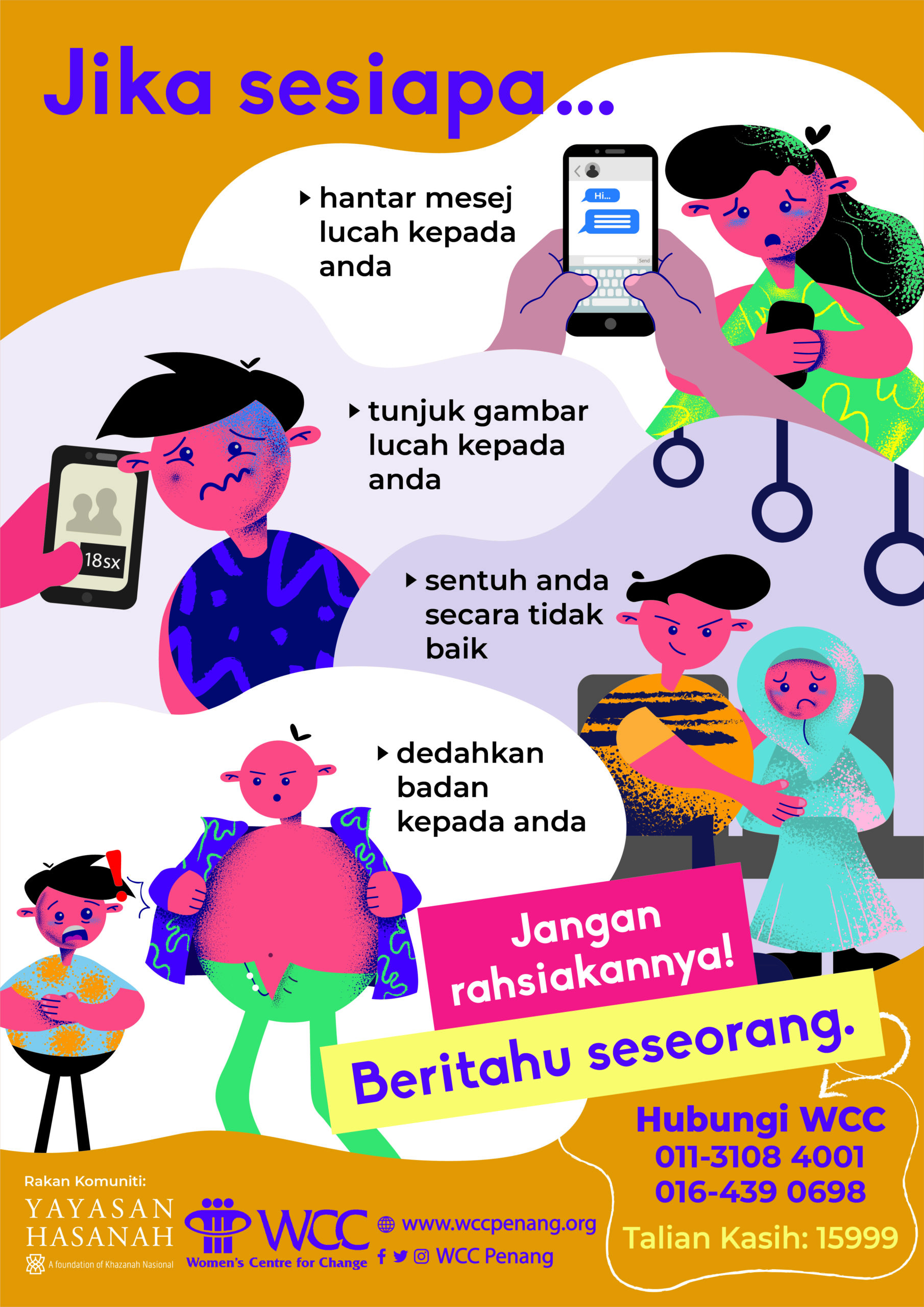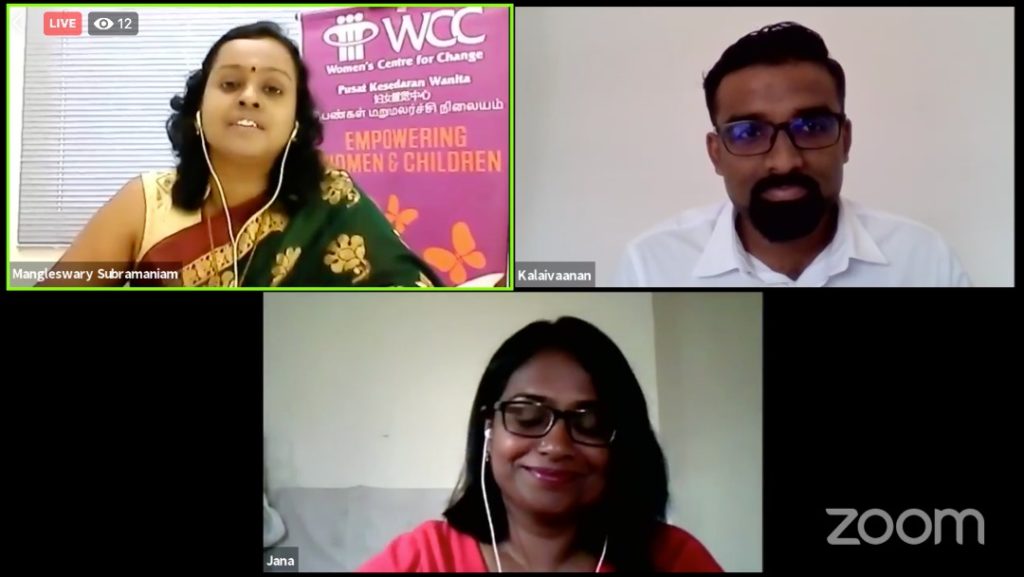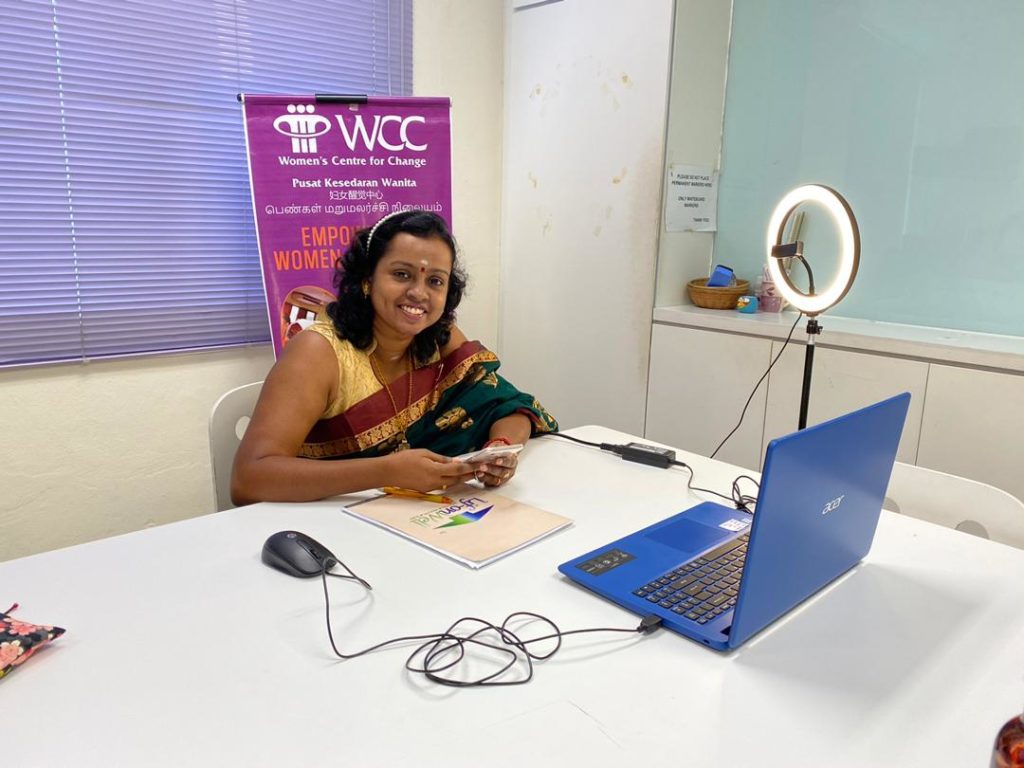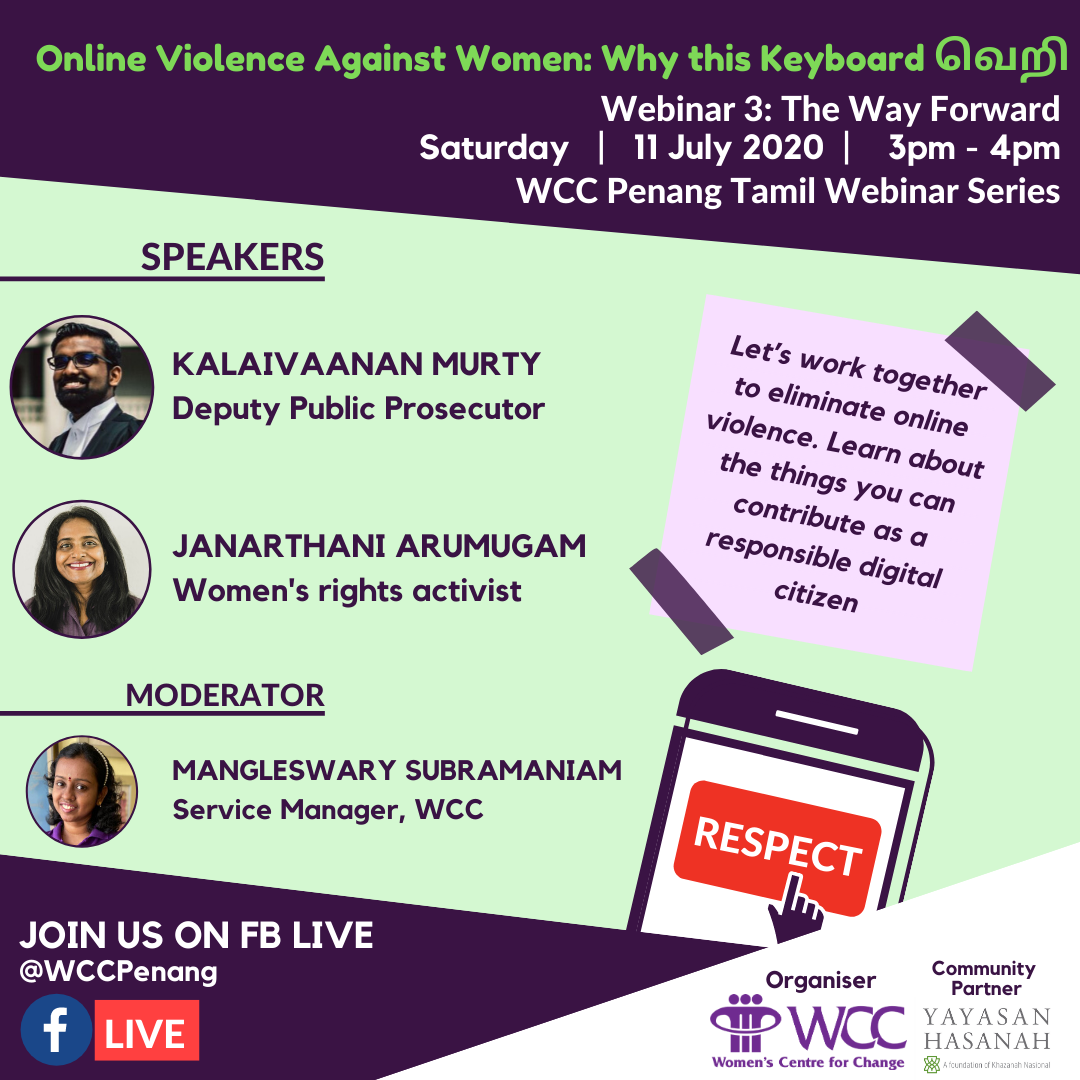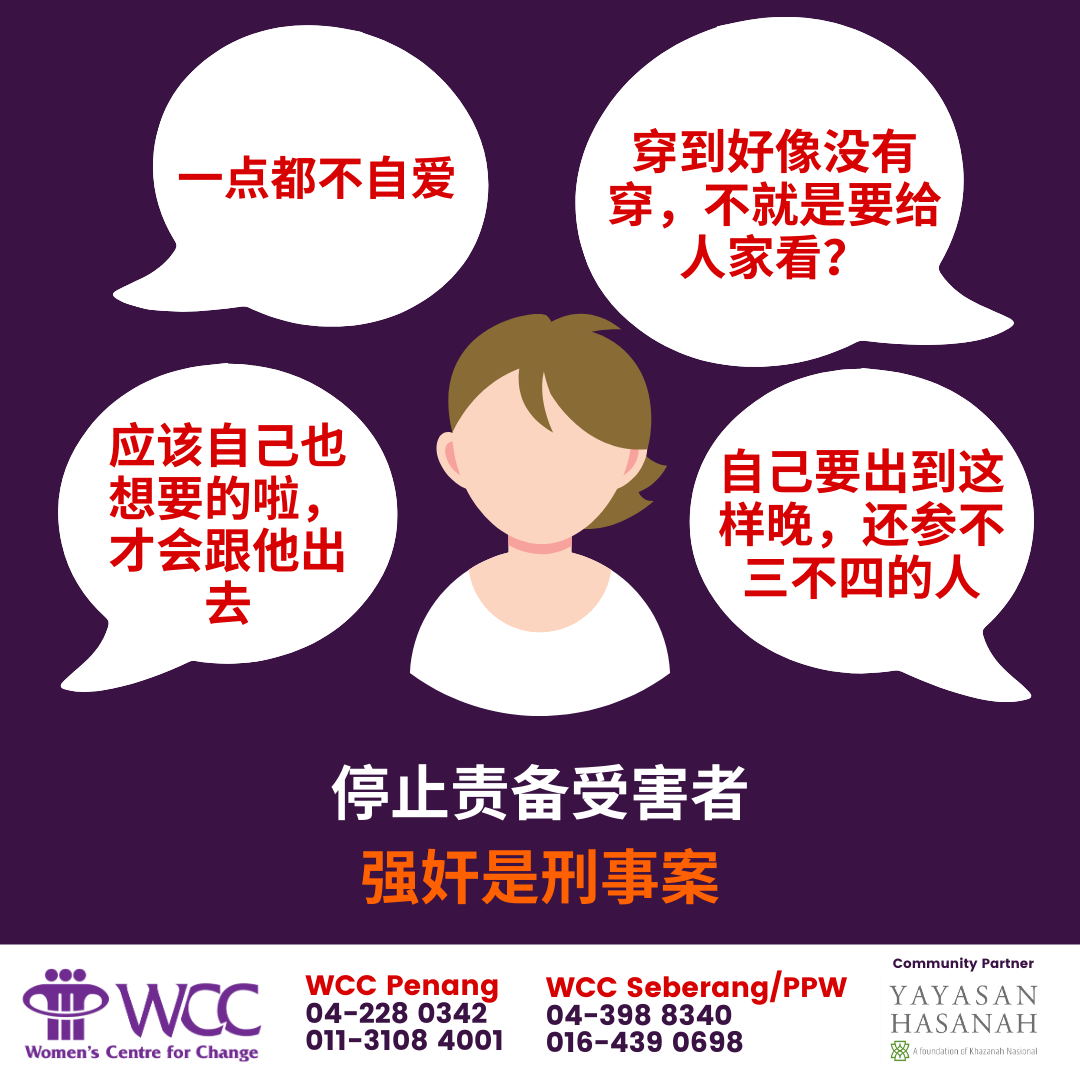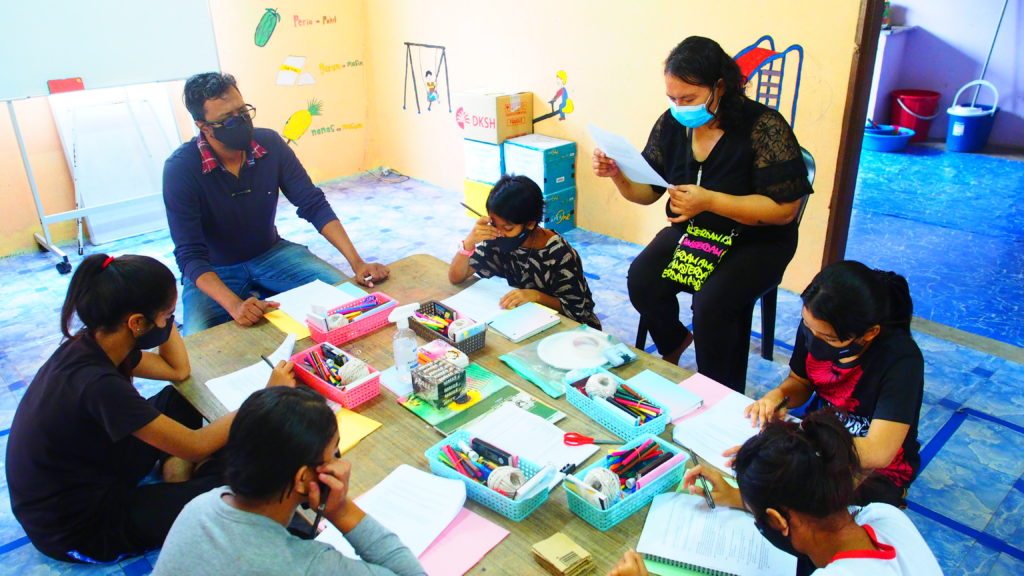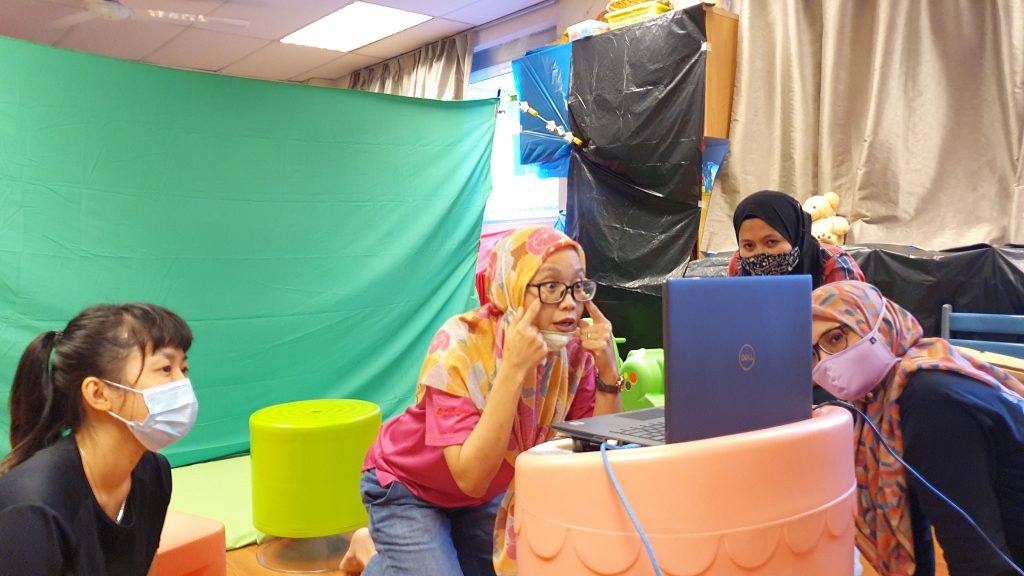THE Covid-19 pandemic and movement control order (MCO) have taught Sujiyanti Narun the importance of adaptability to survive and to tap into her existing skills so she can feed her family.
“I sold honey chicken wings to supplement my husband’s income as a lorry driver, ” said the 45-year-old mother of three.
“The situation became difficult when he lost his job as a daily wage earner and food stalls were closed during the MCO.”
Suji, as she is better known, is undergoing an entrepreneurship programme by non-governmental organisation (NGO) Women of Will (WOW).
 Face mask adapters knitted by Sujiyanti Narun, 45, and Dwi Yanuardani Eko Purnomo, 42.
Face mask adapters knitted by Sujiyanti Narun, 45, and Dwi Yanuardani Eko Purnomo, 42.
“Our next project is to sew hospital uniforms.
“Meanwhile, I have also learnt to sew fabric face masks and knit face mask adapters via online tutorials.
“I sell those online as well as to neighbours and friends.
“I hope to be able to expand the variety of my merchandise to include cushion covers and other household furnishings, ” she said.
She dreams of one day opening her own shop selling sewing equipment.
Sujiyanti, along with Syurita Mohd Hashin and Noranisa Jantan, are among women from the B40 community living in PPR Lembah Subang, Petaling Jaya, selected for WOW’s 18-month entrepreneurship programme to learn the skills to run a business.
The home-based entrepreneurs, who sell cooked food, baked goods or offer home-based spa and beauty services, were about a year into the programme when MCO was enforced.
WOW quickly adjusted the modules to teach the basics of online marketing and set up dedicated WOW Ramadan Market sites on the web for the women to sell their products.
“I used to sell nasi lemak and cucur udang by the roadside, ” said Syurita, fondly called Lin by her friends.
“With the micro-credit loan provided by WOW, I was able to buy an umbrella for shelter and kitchen equipment to expand my menu to include nasi ayam, fried noodles and kuih.” Some of Syurita’s food sold online via the WOW Ramadan Market.
Some of Syurita’s food sold online via the WOW Ramadan Market.
Syurita said WOW taught her about online business, marketing, financial management and food presentation besides the importance of having separate accounts for household expenses and the business.
“Thanks to the WOW Ramadan Market, I was able to earn some income during the MCO by promoting and selling my food on their virtual platform.
“That helped sustain my family, as my husband’s income as a security guard was reduced during the MCO, ” said the 43-year-old.
She said her four children, aged between eight and 24, helped with food preparation, packing, handling customers’ enquiries and delivery since they were all stuck at home during the MCO.
Meanwhile, mother-of-four Noranisa signed up for WOW’s training as she wanted to improve her entrepreneurial skills and food business.
“My speciality is nasi kukus ayam berempah. I have been selling that at Ramadan bazaars for the past five years, but had to find a new way of selling when the street bazaars were cancelled during the MCO.
“My husband has been helping in my business since the restaurant he worked at was closed throughout MCO, ” she said. She turned to social media and word-of-mouth recommendations to get customers.
Although she has found it challenging to learn how to conduct business and market her products online, the 42-year-old is grateful for the opportunity and training provided by WOW. A group of women from PPR Lembah Subang, Petaling Jaya, have been selected by WOW for its 18-month entrepreneurship programme.
A group of women from PPR Lembah Subang, Petaling Jaya, have been selected by WOW for its 18-month entrepreneurship programme.
Empowering B40 women
Women of Will president Datin Wira Goh Suet Lan said the organisation was established in 2016 to empower B40 women and their communities.
“For them, it is about the ability to have a business and enjoy sustainable income.
“It is also important for them to achieve a sense of self and to support their family.“The women are each given micro-credit loans of RM2,000 from Hasanah Foundation to help them start or expand their business, ” she said.
She explained that the loans were repaid monthly to imbue in them a sense of responsibility and ownership.
The selection criteria includes a household income of RM2,500 or less, single mothers and B40 women whose husbands are disabled or have low income.
WOW’s entrepreneurship programme provides them the necessary resources, skills and know-how to run a business, such as marketing, financial management and family management.
“Each woman is paired with a business coach who will mentor them, offer the support needed to develop their business and serve as a confidante, ” said Goh. Datin Wira Goh Suet Lan.
Datin Wira Goh Suet Lan.
“In addition, we have a community development programme where we bring the women, their families and community together to build fellowship and highlight community issues.
“Meanwhile, three women from each batch will be selected for a community leadership development programme to groom them for community leadership roles and to facilitate their community when WOW eventually exits.”
She highlighted that the impact of the community leaders was evident during the MCO.
As she noted that since WOW members could not be on site to coordinate relief efforts, they turned to the leaders to reach out and distribute essentials to the community.
“After a quick survey that revealed most of the women were familiar with social media such as WhatsApp, we quickly tweaked our programme during the MCO to focus on the basics of marketing their businesses using those platforms.
“Since Ramadan bazaars were not allowed during MCO, we set up online bazaar groups where the women could sell their homemade food and cookies, ” she added.
Goh shared that the MCO also saw WOW speeding up the opening of its community sewing centre in Ara Damansara, Petaling Jaya in Selangor.
It was originally slated to open in the third quarter of this year.
“We were able to gather the sewing machines quickly, then collaborated with Biji-Biji Initiative to teach the women how to sew PPE and gain some income from that.
“They will be taught how to sew other items later on, ” she said.
She added that WOW believed in upskilling women based on their skill set and passion.
“We are looking at consolidating our programmes based on lessons learnt during the MCO and adapting them to fit the new normal.
“The adaptation is important to ensure the programmes’ sustainability and to improve WOW’s structure as an NGO, ” Goh elaborated.
She said some 1,300 women in eight PPR flats across Kuala Lumpur and Selangor as well as in Keningau, Sabah, had undergone WOW’s programmes.
“Hasanah understands the impact of long-term partnerships and their collaboration with us has made us a stronger organisation.
“We have also worked with some of the foundation’s partners to connect and support each other on our projects, ” she added.
On Hasanah Foundation’s support for WOW, its community development head Anita Ahmad said: “Community development is one of our focus areas, in addition to education, environment, arts and public spaces as well as knowledge.
“By providing training, coaching and continuous engagement, WOW’s programme helps empower a vulnerable community to be more self-sustainable and it grooms community leaders.
“We provide interest-free micro loans to help the women if they want to expand their businesses.”
Anita explained that Hasanah, a grant-giving foundation by Khazanah Nasional, aimed to empower and enable Malaysian civil society organisations to undertake community initiatives that improved the lives of vulnerable groups in the country. Anita Ahmad
Anita Ahmad
“We build the NGO community in Malaysia by providing training on how they can improve their programmes, management and cross-learning as well as offering a networking platform.
“As part of the Economic Stimulus 2020, we partnered with Finance Ministry for the Hasanah Special Grant 2020 to support social programmes that improve quality of life for vulnerable communities such as Orang Asli and the homeless.
“The funds can be used to help poor families recover from the Covid-19 pandemic and enable rapid mobilisation of resources by NGOs to extend assistance, ” she explained, citing as example training for teachers to learn how to utilise digital tools to teach online.
Anita noted that the MCO was the push that most NGOs needed to move towards the digital initiative and adapt their programmes to suit the community’s needs.
“They will have to use other tools to communicate, raise funds and identify beneficiaries, ” she said.
“It is tough but it is the kind of change we have been pushing for, necessary to ensure the NGOs’ efforts remain relevant and sustainable.”
Source : https://www.thestar.com.my/metro/metro-news/2020/06/26/adapting-name-of-the-business-game
